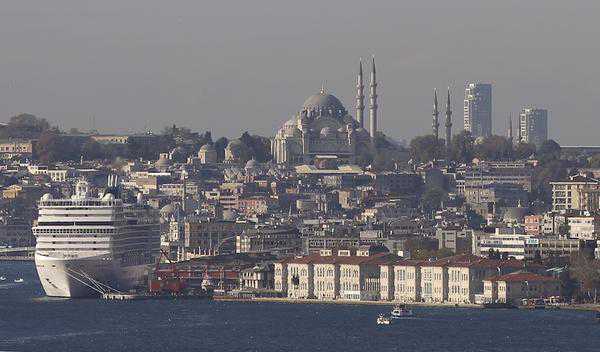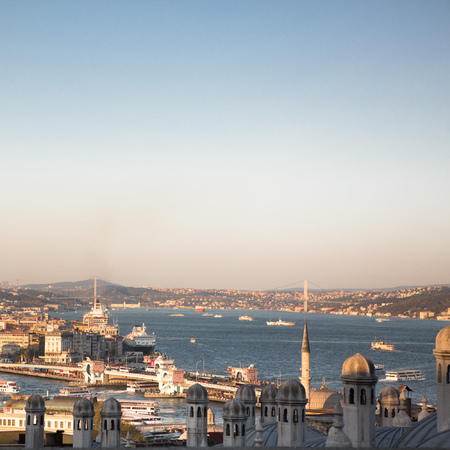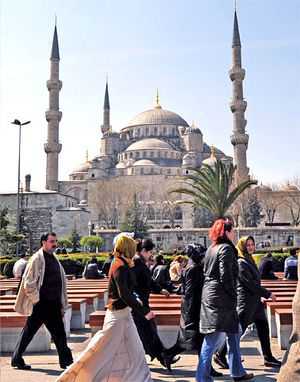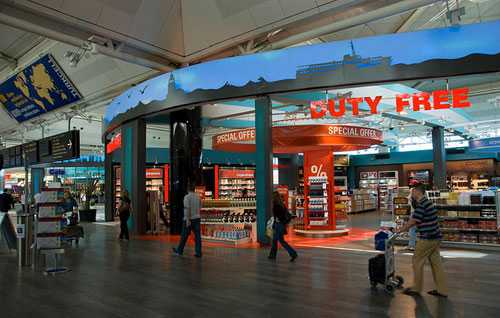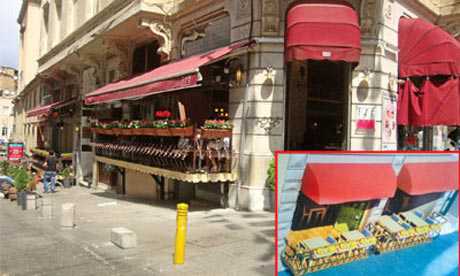Çarşamba
A sprawling weekly affair in an ultra-conservative area, the enormous Fatih Çarşamba (Wednesday) market – flogging fruit and veg, eggs and cured meats, outrageous stilettos, gadgets, branded clothing and, well, everything at rock-bottom prices – is not a place for the faint-hearted. Disorganised and wholly unruly, relentless sellers on table-tops wade among overflowing wares, bellowing prices and bagging goods at the slightest sign of interest. Favoured by locals, tourists are refreshingly absent, so keep the cameras under wraps, adopt a steely visage and don’t hold back from joining swarms of angry mothers raking through mountains of clothing, as these will, no matter how unlikely it seems, produce the occasional gem. Bags and loved ones should be kept close at all times.
• Kirmasti Mahellesi, 34083 Fatih
Inebolu
A genuine Istanbul “foodie” can be defined by their affinity with the Inebolu Sunday market, an Anatolian culinary carnival located in the downtown grime of Beyoğlu’s Kasimpaşa district. Tobacco-chewing sellers from the Inebolu Black Sea region of Turkey set off in their lorries on Saturday night to arrive in Istanbul at the crack of dawn, laden with the finest organic produce; chunky slabs of corn bread, bushels of fragrant herbs, thick pastes and purees, crates of eggs, bright flowers, splitting sacks of grain, walnuts and hazelnuts and bins of glistening olives. With beady-eyed punters beginning their forage as early as 6am, shalwar-clad damsels and their moustached counterparts police topsy-turvy stalls in a chorus of discordant bellows. A trip to Anatolia and back again – and all before breakfast. Shuts up shop early, at 4pm.
• Toprak Tabya Sokak, 34440 Küçük Piyale
Spice bazaar
A short walk from the Grand Bazaar, the 17th-century Eminönü Egyptian Spice Bazaar, open seven days a week, is another favourite of the camera-wielding, souvenir-seeking tourist. A bustling gastronomic paradise since 1664, this is the best place to pick up dried fruits and nuts, spices, olives, Turkish delight, oils and essences of the finest order. Bronze curios glint in the sun, torpedo-sized dates are stacked to the rafters, and the decadent scent of freshly ground Mehmet Efendi coffee merges with the aroma of fresh fish, with surprisingly non-toxic consequences. Marriage proposals should only be entertained if they involve free Turkish delight.
• Sururi Mahellesi, 34120 Fatih
Yeşilköy
Living up to its tranquil title, Yeşilköy (green village) market is the perfect stop-off for those in search of a less frantic market experience. Abundant in greenery, the vast Wednesday weekly has a reputation for high-quality products (including excellent fake silk scarves) and even provides toilet facilities. Two thousand stalls (organised into designated areas), vibrant floral displays and scattered tea cafes combine to create something unheard of in Turkey – a relaxing market browse. Gems include makeup from Mac to Maybelline, available at up to 50% discount, and the best fake Louis Vuitton in the city.
• Yeşilköy Halkali Caddesi, Bakirköy, 34149
Sahaflar
One thing you will not find in abundance at Turkish street markets is books. But the old booksellers’ market in Beyazit is a haven of old volumes. A leafy city oasis located between the Grand Bazaar and Beyazit Mosque, under a canopy of chestnut and acacia trees, the 15th-century market and its associated tea garden was a hotspot for prominent poets, academics and authors in the mid-20th century, and now hosts 23 bookstores. Stationery, calligraphy materials, textbooks, novels and foreign and holy literature, Sahaflar has it all. Huddles of elderly, tobacco-chewing gents peddle watches, badges, old coins and trinkets, , although it’s never entirely clear who is working and who is just hanging around for a chat.
• Çadircilar Caddesi, Beyazit Mahallesi, 34126
Beşiktaş
A district of Istanbul best known for its black-and-white clad football team and fanatical supporters, Beşiktaş hosts a weekly Saturday bazaar that is anything but two-tone. Refreshingly lacking in tourist tat, this multi-storey car park turned two-storey treasure trove is fronted by an extravaganza of fresh foods – pyramids of rosy tomatoes and mountains of cucumbers – winding a path to the second floor, where you’ll find heaped factory seconds, dubiously patterned underwear sold by even more dubious vendors, and unusual jewels at irresistible prices. Look out for dazzling knuckleduster rings and every manner of tasselled, multicoloured bohemian headgear. A small makeshift cafe offers some welcome respite out the back – recuperate and return.
• Nüzhetiye Caddesi, Beşiktaş
Bakirköy
Attracting a mixture of locals and tourists alike, this vast Saturday fixture – a white mass stretching up the Marmara coast – pulls in the bargain-hunters with its range and quality of wares, flogged by international sellers from the Turkic-speaking nations and beyond. Designer shoes, quirky costume jewellery, unusual homeware, pyramids of exquisite organic produce… seek and you shall find. Among the chaos, women with beet-red faces, dressed in starchy white attire, roll dough with disconcerting vigour, slapping it on to sizzling pans with goat’s cheese and parsley to produce mouth-watering traditional Gözleme. The market rises and sets with the sun.
• Osmaniye Mahellesi, 34144 Istanbul Province (beside the Metro station)
Kadiköy
The novelty of being able to say “Just popping over to Asia” is not the only reason to cross to the “other side” of Istanbul. A 25-minute boat journey from the piers at Beşiktaş, Kabataş and Eminönü, this down-and-out haggling pit for those seeking the perfect peach or ultimate bed sheet is located in Hasanpaşa, a 10-minute walk from the ferry terminal. Traditionally a Tuesday fixture, the authentic trading hub (with not an inch of vertical space left yawning) is now also open on Fridays, but only to sell clothing. Beware “Abercrombie and Twitch”.
• Hasanpaşa Mahellesi, 34722 Kadiköy
Tarlabaşi
A short stroll from the bright lights of Taksim’s Istiklal Street, the hard-knock residential area of Tarlabaşi – an area associated with unemployment, crime and prostitution – is not the first destination that comes to mind when directing earnest travellers. Yet surprisingly, the rough-and-readyTarlabaşi Sunday food market – a rabbit warren of dusty, uneven streets – boasts a loyal following from all corners of Istanbul society, from penny-pinching Erasmus students to muttering old villagers craving a taste of home. Stall-holders arrive in laden trucks at the crack of dawn, to unload oozing figs with the texture of honey, dazzling fruits, glowing jams of rosehip, apricot and raspberry, and pickled… everything. Economical street shopping at its most authentic.
• Sakiz Ağaci Sokak, Beyoğlu Mahellesi
Grand Bazaar
Constructed in 1461, the Grand Bazaar, boasting 5,000 shops, is one of the largest covered markets in the world. Once a vibrant hub of international and local trade, recent decades have seen this labyrinth of glittering delights win the hearts, minds and wallets of wide-eyed tourists in search of the ultimate oriental shopping experience. With beckoning sellers peddling exquisite textiles, pottery, spices, jewellery, lanterns and souvenirs, bartering is an absolute must. However, resist the urge to entertain small boys wielding spinning tops on strings, who will address you as “mother”, regardless of age – and, occasionally, gender. At the end of the day, if it gets a bit too bizarre, 22 historical gateways offer ample escape routes.
• The Bazaar is closed Sundays; Divanyolu Caddesi 42, Sultanahmet, 34010
• All markets open at dawn and close at dusk, unless otherwise stated

